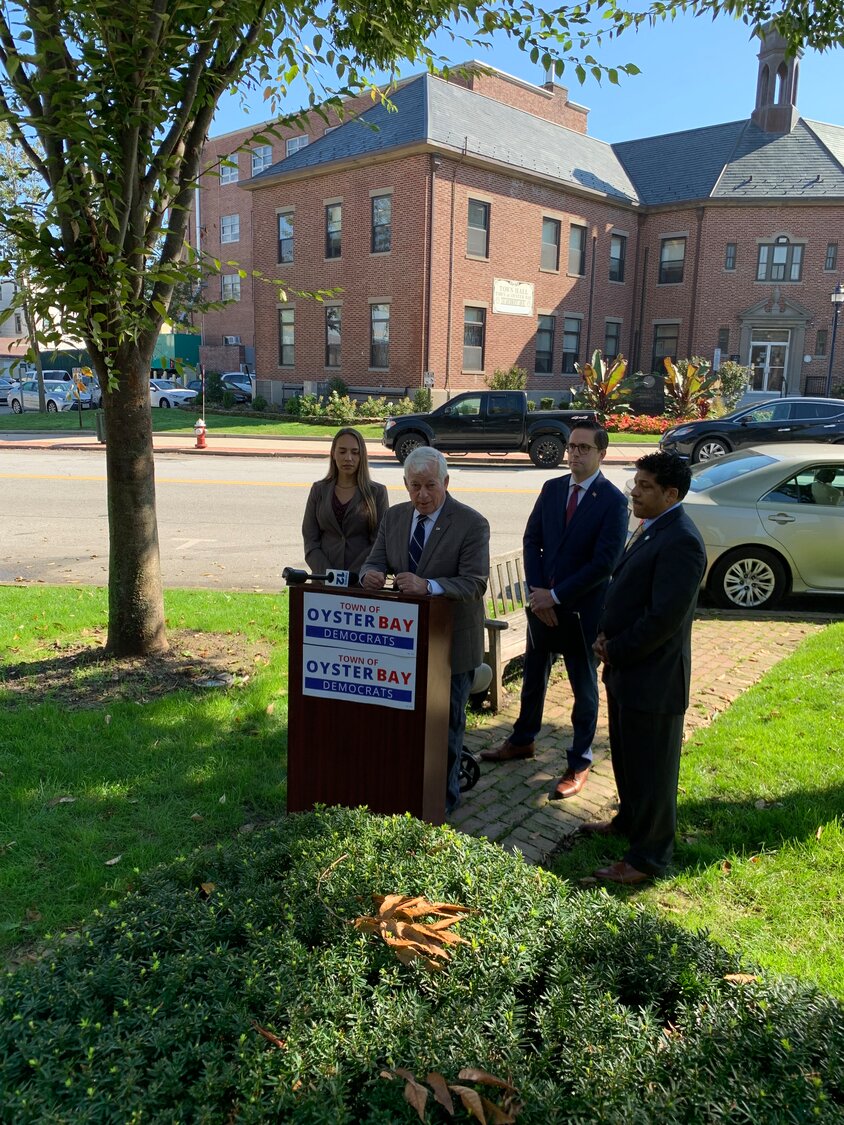Assemblyman Chuck Lavine re-introduces ‘babysitter bill’ for Town of Oyster Bay
While Joseph Saladino’s administration has attempted to put the Brian Noone scandal in its rearview mirror, local Democrats are making it clear that they believe the issue is endemic of wider corruption in the Town of Oyster Bay. Chuck Lavine, assemblyman for District 13, which covers parts of the town, has reissued a bill which would authorize a state monitor to provide direct oversight on “fiscal policies, practices, programs and decisions” of the town.
This is not the first time the bill has been submitted to the Assembly. Lavine explained that he first introduced it in 2019, following the scandalous corruption case surrounding former Oyster Bay Town Supervisor John Venditto.
The assemblyman added that the Noone case, in which the former town inspector general arranged for a $2 million cybersecurity contract between the town and a business associate of his, proved that Oyster Bay’s political culture has not changed in the years since Venditto. He further asserted that the current administration has done nothing to change this culture, and that the safeguards the town board passed following the Noone scandal aren’t enough to stop a similar problem from happening down the line.
“The great problem with the Republican Oyster Bay government is that it is a culture where corruption, self-dealing and helping their friends is endemic, and it’s astounding that in the year 2023 they can’t do anything to change that,” Lavine said. “This latest incident with Brian Noone is mindboggling. This is the individual who they put in charge of the overall investigation of corruption, and this guy’s substantially accused of corruption himself.”
Lavine’s bill proposes that a monitor be appointed by the state comptroller, with direct oversight of all fiscal aspects of town government and a slew of other powers. The monitor would be authorized to review and make recommendations on the town’s operations, issue bonds, and comment on proposed borrowings and collective borrowing agreements.
One of the most striking proposals of the bill would grant the monitor the power to override decisions by the board or supervisor if necessary. While the monitor must justify their reasons to do so, and the town board can appeal it, this would essentially give the state-appointed monitor direct authority over that of the supervisor and town board.
Local Democrats have expressed support for the bill, including several candidates for town board who joined Lavine in announcing the bill outside of Town Hall on Oct. 5. Local Republicans, including Saladino, claim that this is merely political posturing by Lavine and the Democrats to weaken his position before the upcoming elections.
“This is an October political stunt as Democrats already know that the town board removed (Noone) from his duties which led to the end of his employment,” Brian Nevin, the town’s public information officer, wrote in a statement. “We called for an investigation into the matter, approved reforms to prevent future conflicts, and remain eager, willing and able to assist in an official review.”
The reforms mentioned in the statement refer to a resolution passed by the board on Aug. 15, which strengthened disclosure requirements for the inspector general position and required all town vendors and contractors to disclose the names and percentage of interest of all partners, members or stakeholders of their companies.
Jake Blumencranz, Republican assemblyman for District 15, which also includes parts of the town, also denounced the bill in a statement. Blumencranz stated that the state comptroller recently awarded the town a perfect score of “Zero Fiscal Stress,” which he claimed proves there is no need for further oversight in Oyster Bay.
“Assemblyman Lavine’s ‘Retread’ bill, which calls for fiscal oversight of the Town of Oyster Bay’s finances by a state appointed board, is without any basis,” Blumencranz’s statement read. “Like many other members of the majority, he is more focused on petty party politics rather than the financial deficit our state leadership continues to impose on Long Island residents.”

 50.0°,
Overcast
50.0°,
Overcast 




